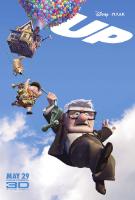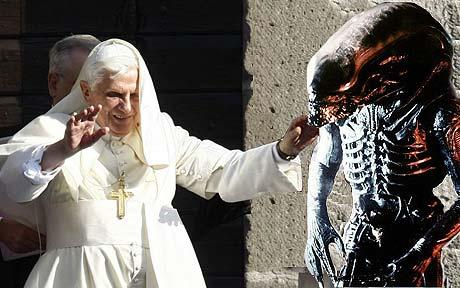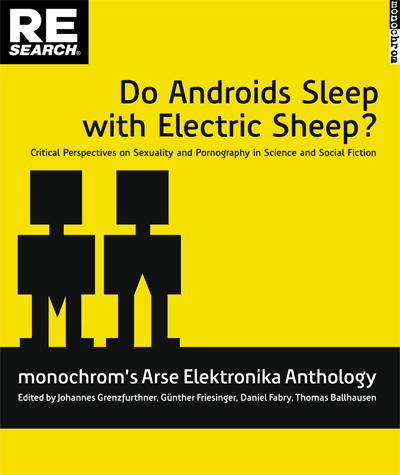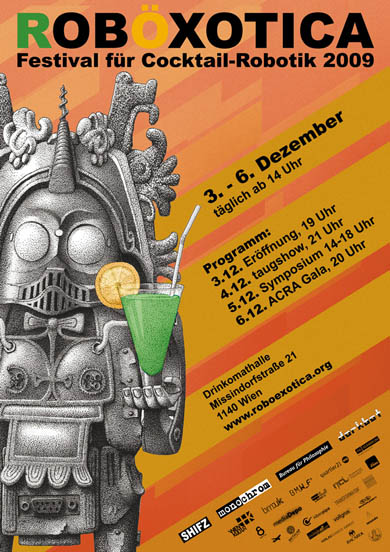The philosopher Charles Sanders Peirce used the term "index" to describe things like Ellie's note, things that stand as physical remnants of the causes of their existence. A footprint is the index of a foot, just as a scrape on a fender might be the index of another car or of a guardrail. Ellie's writing, a sign of her physical being, connects Carl to her through this sort of relationship.  Link Wikipedia is bloated with trivia and needs more meat In its almost nine years of existence, Wikipedia has achieved unequivocal success: as the fifth most visited website in the world, it features more than 14.3m articles in 270 languages contributed by more than 100,000 volunteers.Link New evidence for early life on Mars: NASA A new NASA study of a Martian meteorite that made headlines 13 years ago strengthens the original claim that the rock contains evidence of life on ancient Mars. Researchers at the Johnson Space Center used advanced electron microscopes that weren't available in 1996 to re-examine the magnetite crystals on the meteorite.Link Where In The World: Computer Scientists Develop Program To Decipher Location Of Photograph Computer scientists designed a program that can analyze a photograph to identify where it was taken. The program scans the scene on the photo, noting colors, textures and lines, and uses these elements to compare it to more than six million images previously tagged with locations on online databases. The program has an average success rate of 16 percent, which is better than random chance or a human guess.Link Thinking Comics with Danny Fingeroth (of Spider-Man fame) John Shelton Lawrence asks analyser of comics and the former editor of the Spider-Man range of titles what makes a superhero, philosophically speaking.
Many of us who grew up with comic books noticed those books growing with us. A literate observer of those transitions is Danny Fingeroth, who began his comics-centered life as youthful fan, became a creator as a young man, and has recently emerged as an important interpreter of the medium. His first job at Marvel assigned him the humble task of 'translating' comics for the UK market – making 'color' into 'colour', 'center' into 'centre', 'while' into 'whilst' etc. He left such mundane tasks behind when he became editor for the Spider-Man character and consultant to the Fox Kids Network for Animated Spider-Man. During his Marvel years he earned writing credits for Avengers, The Deadly Foes of Spider-Man, The Hulk, Iron Man, as well as the entire fifty book run of Darkhawk (1991-1995). His awareness of principles and choices in the world of superheroism has permitted him to become an interpreter for grown-up audiences who want a better understanding of the narrative meanings of the comics world. His interpretive books are Superman on the Couch (2004), Disguised as Clark Kent (2007), and The Rough Guide to Graphic Novels (2008, illustrated by Roger Langridge), which includes a new thirty page graphic novel written by him.Link The Meaning of Seattle: Truth Only Becomes True Through Action WTO+10: Before 1999, the momentum of globalization seemed to sweep everything in front of it, including the truth. But in Seattle, ordinary women and men made truth real with collective action.Link Laughing Squid recommends Roboexotica 2009  Roboexotica 2009, an annual festival for cocktail robotics organized by SHIFZ, monochrom and Bureau of Philosophy, takes place December 3-6 at Drinkomat in Vienna, Austria.Link Interview with Baburam Bhattarai: Transition to New Democratic Republic in Nepal This interview of Dr. Baburam Bhattarai, a leading figure of the Unified Communist Party of Nepal-Maoist, was conducted by the World People's Resistance Movement (Britain).
Link Enumeration Sensation: Umberto Eco's fascination with lists Middle of the night and your head teems with half-formed thoughts: Did I pay the car insurance? Where did I park the car? Is my best dress shirt at the dry cleaners? What time's the wedding on Saturday? Need a map of Vermont to get there. I should frame my vintage maps one of these days. Maybe start with that bird's-eye view of New Amsterdam, or the blue-tinted mariner's chart ...Link Golden Gate Bridge As Sanctioned Climbing Site? Taking a cue from "the Bridge Climb at the Sydney Harbour Bridge, where visitors pay about $200 for a guided trek along catwalks, up and down ladders and along the outer arch of the coat-hanger-shaped bridge," Golden Gate Bridge officials see a possible source of revenue in an interactive visitor experience. They draw the line, however, at bungee jumping.
Link The Muppets: Bohemian Rhapsody Zombie Turkey! Brain scanner can tell a Dali from a Picasso Patterns in brain activity can be used to determine whether someone is looking at a surrealist landscape by Salvador Dali or the cubist lines of Pablo Picasso.Link Should We Defend Undocumented Workers? One winter morning in 1996, Border Patrol agents charged into a Los Angeles street-corner clinic where 40 day laborers had lined up to be tested for AIDS. One worker, Omar Sierra, had just taken his seat, and a nurse had inserted the needle for drawing the blood. As agents of the migra ran across the street and sidewalk, Sierra jumped up, tore off the tourniquet, pulled the needle out of his vein and ran.Link Starts with candy, ends in napalm Barack Obama once described the operations in Afghanistan as a "necessary war". That war has lasted eight years and General Stanley McChrystal, the commander of the US forces there, appointed by Obama, is urging him to deploy 40,000 more troops.Link Armenia excels at chess: The lion and the tiger Armenia excels at chess. Its top player now has a shot at becoming world champion. How did this tiny country become a giant at the game?
Levon Aronian likes to sleep late. But at 11am on a weekday in August this year, his dreams were disturbed by what sounded like people chanting his name. In a semi-conscious state he got up, looked out of the window and saw a large group of people outside where he was staying. "You must win for Armenia!" shouted the crowd. They were there because in his native country, Levon Aronian is a megastar. He is 27 years old, charming, handsome, wealthy and the best in his nation at chess. And his countrymen take chess very seriously. The patriotic zeal focused on him during the August tournament was more intense than usual. If Aronian did well, he might one day become world champion.Link Monsanto: Biotech bonanza Last year's global food crisis made millions for agro-giant Monsanto. Tim Hunt of Ethical Consumer magazine fails to find any redeeming features in this corporate behemoth.
Try looking objectively at biotech firm Monsanto, a company that only ever seems to receive a negative press, and see if you can find any redeeming features – any ray of light emanating from this seeming black hole of corporate misanthropy. You will struggle. Monsanto is the exemplar of all that is wrong with the world's corporate-controlled food system.Link Like humans, ants use bacteria to make their gardens grow Leaf-cutter ants, which cultivate fungus for food, have many remarkable qualities.Link A History of 20th-Century Russia, Warts and All A new two-volume history of Russia's turbulent 20th century is being hailed inside and outside the country as a landmark contribution to the swirling debate over Russia's past and national identity.Link Die, Cusack, die!? John Cusack deserves his reputation as a likable actor. Back in 1985, you wanted him to get the girl more than most teen actors. But 2012 is so dumb you only want to cheer, Die Cusack, Die! Ditto Amanda Peet. And their children. You don't want this family to reunite, to make good on broken promises, or to carry the American flame forward into the reset future. You don't want them to do any of that. You just want them to do what they're supposed to do at the end of the world, and that is experience a brief moment of bone-chilled terror, then die like everyone else.Link Modern Architecture and Complaints about the Weather, or, 'Dear Monsieur Le Corbusier, It is still raining in our garage….' Historians of Modern Architecture have cultivated the image of the architect as a temperamental genius, unconcerned by issues of politeness or pragmatics—a reading reinforced in cultural representations of Modern Architects, such as Howard Roark, the protagonist in Ayn Rand's 1943 novel The Fountainhead (a character widely believed to be based on the architect Frank Lloyd Wright). The perception of the Modern Architect as an artistic hero or genius has also influenced the reception of their work. Despite their indisputable place within the architectural canon, many important works of Modern Architecture were contested on pragmatic grounds, such as cost, brief and particularly concerning issues of suitability and effectiveness in relation to climate and weather. A number of famed cases resulted in legal action between clients and architects, and in many more examples historians have critically framed these accounts to highlight alternate issues and agendas.Link Why do human testicles hang like that? [...] the first big question is why so many mammalian species evolved hanging scrotal testicles to begin with. The male gonads in some phylogenetic lineages went in completely different directions, evolutionary speaking. For example, modern elephants' testicles remain undescended and are deeply embedded in the body cavity (a trait referred to as "testicond"), whereas other mammals, such as seals, have descended testicles but are ascrotal, with the gonads simply being subcutaneous.Link Red Cosmos: K.E. Tsiolkovskii, Grandfather of Soviet Rocketry The details of Konstantin Tsiolkovskii's life, as James Andrews explains in his new study of the man, are more complex and far more interesting than the legend.
Anyone who has studied the history of the space age has come across the name Konstantin Tsiolkovskii (1857–1935), often under the more common alternative spelling Tsiolkovsky. He is generally credited with the development of the basic mathematical formulae for space travel. Other than that, he is often described as the man who after the revolution inspired a small group of space enthusiasts, including Glushko and Korolev, to begin serious work on rocket technology. The details of his life, as James Andrews explains in his new study of the man, are more complex and far more interesting than the legend.Link How Downloading Is Changing Music? Digital downloading and distribution, illegally or otherwise, has had a greater effect on the recording industry than anything in its history. As the legal variety grows rapidly, driven most significantly by iTunes, so those old-school players are having to adopt radical new business plans to compete in the brave new world of music.Link Arse Elektronika: Interview with Kyle Machulis on Sex Toy Tech  Intro is in German, interview in English language. Link (MP3) Reflections On Epilepsy Raymond Tallis applies his mind to his mind.
My experience with neurological patients has underlined what ordinary life tells us: that a brain in some working order is a necessary condition for human consciousness. Unlike mind-brain identity theorists, however, I do not believe that consciousness is identical with neural activity in the cerebral cortex, the brain stem, the thalamus or wherever. This does not mean that I think I have an immaterial soul; nor do I subscribe to a 'ghost-in-the-machine' Cartesian dualism. Rather, I am a non-Cartesian atheist who just can't help noticing that however hard you look, you will not find sensations, affections and reasons in bits of the brain, or even distributed throughout the brain. So although a functioning brain is necessary for every aspect of consciousness, from the simplest twinge of sensation to the most exquisitely constructed sense of self, it is not sufficient for consciousness – and certainly not for the kind of consciousness you and I enjoy.Link Paying Off the Warlords: Anatomy of an Afghan Culture of Corruption Kabul, Afghanistan -- Every morning, dozens of trucks laden with diesel from Turkmenistan lumber out of the northern Afghan border town of Hairaton on a two-day trek across the Hindu Kush down to Afghanistan's capital, Kabul. Among the dozens of businesses dispatching these trucks are two extremely well connected companies -- Ghazanfar and Zahid Walid -- that helped to swell the election coffers of President Hamid Karzai as well as the family business of his running mate, the country's new vice president, warlord Mohammed Qasim Fahim.Link It's Really a War on the Poor: A War on Coca Nobody Believes In Since their systemic targeting of producer nations through militarized methods of eradication, government officials in Washington have regularly brandished bogus data when concerning the effectivoeness and validity of the US's so-called 'war on drugs'. Dating back to the 1980s, Colombia became a figurative and literal battleground in this war, as the world's principal cultivator of coca. As liberalized economic policies debilitated Colombia's rural political economy hundreds of thousands of small and medium-sized producers, campesinos, and landless farmers gravitated toward the narcotic industry, via cultivation, as a way of life and survival. The United States, denounced such activities a threat, as drugs were proclaimed a risk to 'national security' (White House, 1986). In turn, Washington devoted a great deal of time, money, and military resources to curb coca 'at the source'. Yet this militarized approach toward eradication has consistently produced incredibly poor results. Rather than facilitating a decline the narcotic industry witnessed an enormous expansion over the past two decades.Link Arse Elektronika and qDot on FM4  Kyle has a second site just for the projects based on his hobby of breaking sex-toys. Slashdong. If you feel uncomfortable viewing pictures of sex-toys in various states of deconstruction, you may want to avoid it. If that type of thing doesn't bother you, then you might find it an entertaining read about all sorts of things you probably didn't know existed.Link The Universe According to Scrooge McDuck A profoundly thorough history of Scrooge McDuck and his effect on world culture, by Wiley Wiggins.Link Oceans' Uptake of Human-Made Carbon May Be Slowing The oceans play a key role in regulating climate, absorbing more than a quarter of the carbon dioxide that humans put into the air. Now, the first year-by-year accounting of this mechanism during the industrial era suggests the oceans are struggling to keep up with rising emissions -- a finding with potentially wide implications for future climate. The study appears in the November 19 issue of the journal Nature.Link Dancer Plans To Induce Epileptic Seizure In Performance A dance artist with epilepsy is to try to induce a seizure on stage - but has been urged to reconsider by a charity.Link Ben-Hur: The Book That Shook the World "Hate keeps a man alive."Link The National ID Cards website This website contains a comprehensive listing of national ID cards by geographic region worldwide allowing users to study and compare specific national policies regarding identity cards.Link (via Hans Christian Voigt, bagasch) A Teledildonic Soiree: Arse Elektronika Vienna Special  Friday, November 20, 8 PM @ Raum D/Quartier 21, Museumsquartier, Vienna == What is the sex of the future, and why aren't we having it yet? == On Killing Ideas Roboexotica 2009: The new poster ORNL's Jaguar is world's fastes computer Ever since it debuted in 2005 with a capability of (what now seems modest) 26 teraflops, the Jaguar at Oak Ridge National Laboratory has been something special among the world's top supercomputers. For the past year, it has been rated the second fastest computer on the planet.Link Money as we knew it? A political history of cash and its disappearance As coins and banknotes are displaced by credit cards and virtual transactions, Joachim Kalka conjures twin visions of money's sensuous effects—prompting mystical revulsion or cartoonish delight—from the disappearing world of cash.
Money gives us pleasure, Brecht needlessly told us, but that is not what will be meant here—not the kind of pleasure ignited by money because we lust after the unlimited opportunities it promises. We should rather be thinking of something more banal and mysterious: of the intrinsic sensuousness of the actual money itself—small metal discs, or oblong strips of rustling, crackling paper. In Balzac, an artist tries to marry into a bourgeois family; he carelessly remarks that money is there to be spent—since it is round, it must roll. The father of the family, reacting with the deepest mistrust, replies: 'If it is round for prodigals, it is flat for economical people who pile it up.' The opposite approaches of the bohemian and the rentier (by the end of the tale they have comfortably fused) converge in images of the concrete pleasures of money. Both are thinking of the ways in which hands unconsciously encircle coins, a physical sensation. One man high-spiritedly lets them roll loose, the other deliberately stacks them on top of each other, with greedy precision. The spendthrift and the miser both feel the coins between their fingers.Link The Taliban aren't so tribal Patrick Porter talks to George Miller about his article in November's Le Monde diplomatique, "Culture wars in Afghanistan". He explains that the US has suddenly realised it needs to better understand the Taliban, but has failed to do so.
Link (MP3) Sam Spade, Existential Hero? Michael Rockler scrutinizes the private investigator's existentialist credentials.
Perhaps the most popular existential work of the 20th century was written by a man who has not usually been identified as a philosopher, but whose work clearly embodies existential themes. Dashiell Hammett, creator of the hard-boiled detective novel, applied an existential viewpoint to his writing. His novel The Maltese Falcon is an excellent example of literature in which existential themes run through the story.Link The Paradox of Wealth: Capitalism and Ecological Destruction By John Bellamy Foster and Brett Clark.
The core argument on the paradox of wealth here was first introduced in a paper by both authors, entitled "Marx's Ecology in the Twenty-First Century," presented by Clark at the International Symposium on Ecological Civilization, Sanya, Hainan, China, June 23, 2009.Link A Prehistory of n-Categorical Physics By J. Baez and A. Lauda:
This paper traces the growing role of categories and n-categories in physics, starting with groups and their role in relativity, and leading up to more sophisticated concepts which manifest themselves in Feynman diagrams, spin networks, string theory, loop quantum gravity, and topological quantum eld theory. Our chronology ends around 2000, with just a taste of later developments such as open-closed topological string theory, the categori cation of quantum groups, Khovanov homology, and Lurie's work on the classi cation of topological quantum eld theories.Link (PDF) Mistakes in Typography Grate the Purists Dirt. Noise. Crowds. Delays. Scary smells. Even scarier fluids swirling on the floor. There are lots of reasons to loathe the New York City subway, but one very good reason to love it — Helvetica, the typeface that's used on its signage.Link Roland Barthes: Presence of Mind Roland Barthes died almost 30 years ago, on 26 March 1980, but his works continue to engage new and old readers with remarkable consistency. Books about him keep appearing: literary and philosophical essays by Jean-Claude Milner (2003), Jean-Pierre Richard (2006) and Eric Marty (2006), a gossipy biography of his last years by Herve Algalarrondo (2006), a chapter about his piano-playing by François Noudelmann (2008). And now we have two new/old texts by Barthes himself, transcriptions of his notes on the trip he made to China in spring 1974 with his friends from the Seuil publishing house and the magazine Tel Quel (Francois Wahl, Philippe Sollers, Julia Kristeva, Marcelin Pleynet), and of his so-called diary of mourning, a set of jottings made in the immediate aftermath of his mother's death in the autumn of 1977.Link 2012 Debunker guide Christ on crutches, why does anybody still buy into 2012 Mayan Apocalypse theory?
It's like all the new age crystal worshipers joined a death cult.
The Mayans' calendar outlasted their civilization, and that's just not good enough for some people. Don't you over entitled pricks realize how much work it is to carve 5,125 years of calendar into stone? I bet your calendar doesn't go past this year, and it's printed on fucking tree pulp! As Richard Dawkins would say, "Fuck Off". Here's an illustrated guide to debunking 2012 theories. Enjoy! Link The Vatican joins the search for alien life The Vatican's Pontifical Academy of Sciences is holding its first ever conference on alien life, the discovery of which would have profound implications for the Catholic Church.
 Link Can Oil Be Recycled? A new facility aims to test the market for recycled oil
Changing the oil in a car every 5,000 kilometers or so seems to be the industry standard (and may well be overkill). But that means a whole lot of pouring and draining motor oil into and out of the U.S. auto fleet: 1.3 billion gallons or so, to be precise.Link Pakistan creates its own enemy The current area of concern for the US, and the world, is the zone between Pakistan and Afghanistan where porous borders allow the free passage of conflicts. The US is pressuring Pakistan to achieve through military means what it has itself failed to do in Afghanistan; and since Pakistan has fewer resources and a larger territory, this can only multiply the problems.
Link Massive Defense Spending Leads to Job Loss There is a major national ad campaign, funded by the oil industry and other usual suspects, to convince the public that measures to reduce greenhouse gas emissions (GHG) and slow global warming will result in massive job loss. This ad campaign warns of slower growth and the loss of hundreds of thousands of jobs, possibly even millions of jobs, if some variation of the current proposals being debated by Congress get passed into law.Link When Sesame Street Was New Educators were thrilled that children were entering school with a grasp of letters, colors and elementary numbers. Later, the show was criticized as too winsome, leading children to expect that the elements of reading and math would bounce in bright colors across the classroom. Nowadays, teachers are probably just grateful if kindergartners aren't texting in class.Link "Krach der Roboter" on FM4 Soundselection 21   Link FM4 Thomas Edison - Opening of Williamsburg Bridge The Peril of Palatability: Former FDA chief about dangerously delicious food Dangerously delicious food, designed by Big Food and by restaurants to taste so good, threatens public health. Congress needs to do something...
Link What Winnie the Pooh would have done in a swineflu pandemic Lakes of Antarctica Isolated for Millions of Years Discovered with New, Unknown Viruses Antarctica's icy lakes have been discovered to house a surprisingly diverse community of viruses, including some that were previously unidentified. The finding could shed light on whether microbial life evolved independently in Antarctica, which has been isolated for millions of years, or they were introduced there more recently.Link Rapid Supernova: New Class Of Exploding Star? An unusual supernova rediscovered in seven-year-old data may be the first example of a new type of exploding star, possibly from a binary star system where helium flows from one white dwarf onto another and detonates in a thermonuclear explosion.
 Link One more Google Translate Classic: Film Lines Translated to Japanese and Back Max Weber: Enemy of the State in Tehran An unlikely suspect was fingered at the recent show trials of Iranian dissidents: Max Weber, whose ideas on rational authority were blamed for fomenting a "velvet revolution" against the Islamic Republic. "Theories of the human sciences contain ideological weapons that can be converted into strategies and tactics and mustered against the country's official ideology," Saeed Hajjarian, a leading strategist in the Iranian reform movement, explained in his forced confession.Link Great new "Zeigerpointer" entries! Point! Zeig! Point!  But what's a Zeigerpointer? The Zeigerpointer (a German-English word-mix tautology that we feel free to give birth to) is the most penurious form of capitulation in the print media. Various people, predominantly in local newspapers or magazines of regional interest, are forced by photographers armed with Zeiss-lenses to indicate occurrences. These people have to point at things. With their bare hands! They have to present occurrences that withdraw themselves through their absence, through optical expiration or simply the course of time. Like car wrecks that have already been recovered, asylum seekers that have fled, or burnt down buildings that were entirely consumed by the fire. Occurrences that elude the media machinery because of visual boredom or a state of simply-not-there-anymore. Well, then let's give our readers a Zeigerpointer! The Zeigerpointer shall zeigerpoint it out!  ("Police officer Karin Pömmer shows the manhole that nearly became a death trap for the duckling.") Link monochrom's Toyps: new entries   We need your errors! Link Have a seizure? Need a cushion? Get a dog! Life as a Labradoodle may sound free and easy, but if you're Jet, who lives in New Jersey, there is a lot of work to be done. He is both a seizure alert dog and a psychiatric service dog whose owner has epilepsy, severe anxiety, depression, various phobias and hypoglycemia. Jet has been trained to anticipate seizures, panic attacks and plunging blood sugar and will alert his owner to these things by staring intently at her until she does something about the problem. He will drop a toy in her lap to snap her out of a dissociative state. If she has a seizure, he will position himself so that his body is under her head to cushion a fall.Link (thanks, Mitch H) Unborn children have accents: Babies 'cry in mother's tongue' German researchers say babies begin to pick up the nuances of their parents' accents while still in the womb.Link (thanks, Mitch H) Occupation of Vestas factory on the Isle of Wight: A fight worth having Kate Ferguson interviews Ian Terry, a 23-year-old wind turbine worker involved in the occupation of the Vestas factory on the Isle of Wight.
Link "The Red Shoes" Restored, With Shoes Redder Than Ever This born-again version of The Red Shoes, digitally resuscitated from battered prints and negatives, ... is essential viewing because even if you think you have seen the movie before its restoration, if you're under 60, you probably haven't seen it anywhere near its original Technicolor glory.  Link Michael Clark - Baggy Cool More and more robo events: BBC mentions Roboexotica  The Harbin robot games will be one among an increasingly crowded calendar for robot sports and other competitive events. One event, Roboexotica, is for robots that can mix cocktails, light cigarettes and chat with bar patrons.Link Let's measure in Global Hectares, not in Dollars! Capitalism and the Ecological Footprint Samir Amin writes:
Our Ecological Footprint by Mathis Wackernagel and William Rees (1996) instigated a major strand in radical social thinking about construction of the future.Link Internet Search Process Affects Cognition, Emotion Nearly 73 percent of all American adults use the Internet on a daily basis, according to a 2009 Pew Internet and American Life Project survey. Half of these adults use the Web to find information via search engines, while 38 percent use it to pass the time. In a recent study, University of Missouri researchers found that readers were better able to understand, remember and emotionally respond to material found through "searching" compared to content found while "surfing."Link The Berkeley-fication Of Sesame Street Alessandra Stanley writes:
Forty years on, this is your mother's Sesame Street, only better dressed and gentrified: … The famous set, brownstones and garbage bins, has lost the messy graffiti and gritty smudges of city life over the years. Now there are green spaces, tofu and yoga.  Link Wikipedians! Get a life!? Wikipedia writer/editors are 80% male, 65% single, 85% without children, about 70% under the age of 30. Does that tell us anything?
Link Benjamin Cowden: New monochrom artist in residence  Benjamin Cowden began working with metal during an undergraduate anthropology project in Cameroon in 1997, where he studied how Baka Pygmies turned worn machetes into utility knives. He later worked as a blacksmith and focused on utilitarian objects and furniture. When he began making sculpture in 2003, Cowden sought to maintain the physical relationship and interactivity of his earlier work. During his graduate studies at Southern Illinois University Carbondale, Benjamin created interactive mechanical devices which explored human experience and the senses. Mr. Cowden now lives in Oakland California where he continues to explore these themes using mechanics, electronics, and other media.  Myth of the Global Safety Net Media reports on the economic meltdown have mainly concentrated on the impact of the crisis on the rich nations, with little concern for the mass of the population living in what used to be called the Third World. The current view seems to be that the setbacks in these "emerging economies" may be less severe than expected. China's and India's high growth rates have slackened, but the predicted slump has not materialized. This line of thought, however, analyses only the effects of the crisis on countries as a whole, masking its differential impact across social classes. If one considers income distribution, and not just macro-calculations of gdp, the global downturn has taken a disproportionately higher toll on the most vulnerable sectors: the huge armies of the poorly paid, under-educated, resourceless workers that constitute the overcrowded lower depths of the world economy.Link IUCN Red List of Threatened Species Compiled by the International Union for the Conservation of Nature in Gland, Switzerland, the IUCN Red List of Threatened Species aims to catalogue and highlight those plants and animals that are facing a higher risk of global extinction.
Link Matrix Producer Plans Biopic Of Prophet Muhammad -- without Muhammad Barrie Osborne is planning a $150 million production, funded by a holding company in Qatar, that "will educate people about the true meaning of Islam." The scholar "Sheikh Yusuf Al-Qaradawi [will] oversee all aspects of the shoot. In accordance with Islamic law, the prophet will not actually be depicted on screen.Link The Evil of Banality: Troubling new revelations about Arendt and Heidegger Will we ever be able to think of Hannah Arendt in the same way again? Two new and damning critiques, one of Arendt and one of her longtime Nazi-sycophant lover, the philosopher Martin Heidegger, were published within 10 days of each other last month. The pieces cast further doubt on the overinflated, underexamined reputations of both figures and shed new light on their intellectually toxic relationship.Link monochrom's Massive Multiplayer Thumb-Wrestling @ "Top Sites For Cool Games Using Your Hands"  What do you do when the XBox 360 has gone down, your Nintendo DSi is on the fritz, and even your board games aren't around because you sold them at your yard sale? You and some friends, sitting around on your thumbs is no way to spend Saturday night.  Link [The Archives] 
. . . . . |
. . monochrom is an art-technology-philosophy group having its seat in Vienna and Zeta Draconis. monochrom is an unpeculiar mixture of proto-aesthetic fringe work, pop attitude, subcultural science, context hacking and political activism. Our mission is conducted everywhere, but first and foremost in culture-archeological digs into the seats (and pockets) of ideology and entertainment. monochrom has existed in this (and almost every other) form since 1993.
[more] Booking monochrom: [Europe] [USA] External monochrom links: [monochrom Wikipedia] [monochrom Flickr] [monochrom blip.tv] [monochrom GV] [monochrom Youtube] [monochrom Facebook] [monochrom iTunes] [monochrom Twitter] 
[ P r o j e c t s ] Soviet Unterzoegersdorf / Sector 2 / The Adventure Game Krach der Roboter: Hello World! Slacking is killing the DIY industry (T-Shirt) Carefully Selected Moments / CD, LP Freedom is a whore of a word (T-Shirt) International Year of Polytheism 2007 Santa Claus Vs. Christkindl: A Mobster Battle Kiki and Bubu and The Shift / Short film Kiki and Bubu and The Privilege / Short film Kiki and Bubu and The Self / Short film Kiki and Bubu and The Good Plan / Short film Kiki and Bubu and The Feelings / Short film / Short film Soviet Unterzoegersdorf / Sector 1 / The Adventure Game I was a copyright infringement in a previous life (T-Shirt) Firing Squad Euro2008 Intervention I can count every star in the heavens above -- The image of computers in popular music All Tomorrow's Condensations / Puppet show The Redro Loitzl Story / Short film Law and Second Order (T-Shirt) They really kicked you out of the Situationist International? When I was asked to write about new economy Arse Elektronika 2007, 2008, 2009 etc. The Void's Foaming Ebb / Short film The Charcoal Burner / Short film Fieldrecording in Sankt Wechselberg / Short film Campaign For The Abolition Of Personal Pronouns Entertainment (Unterhaltung) / Short film Nicholas Negroponte Memorial Cable Experience the Experience! (West Coast USA/Canada Tour 2005) A Holiday in Soviet Unterzoegersdorf Massive Multiplayer Thumb-Wrestling Network Soviet Unterzoegersdorf Metroblogging Every Five Seconds an Inkjet Printer Dies Somewhere 452 x 157 cm² global durability Blattoptera / Art for Cockroaches An attempt to emulate an attempt The Department for Criticism against Globalisation Disney vs. Chrusov / Short film Turning Threshold Countries Into Plows Roböxotica // Festival for Cocktail-Robotics Cracked Foundation For The Fine Arts Oh my God, they use a history which repeats itself! (T-Shirt) Administrating:  . . . . . |
|||




